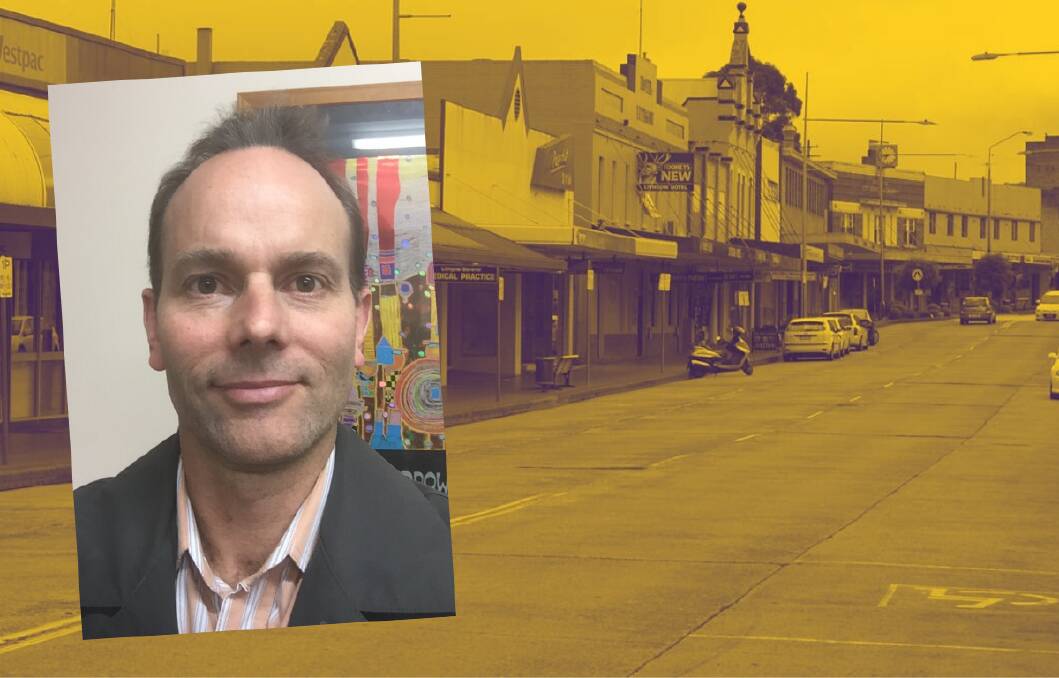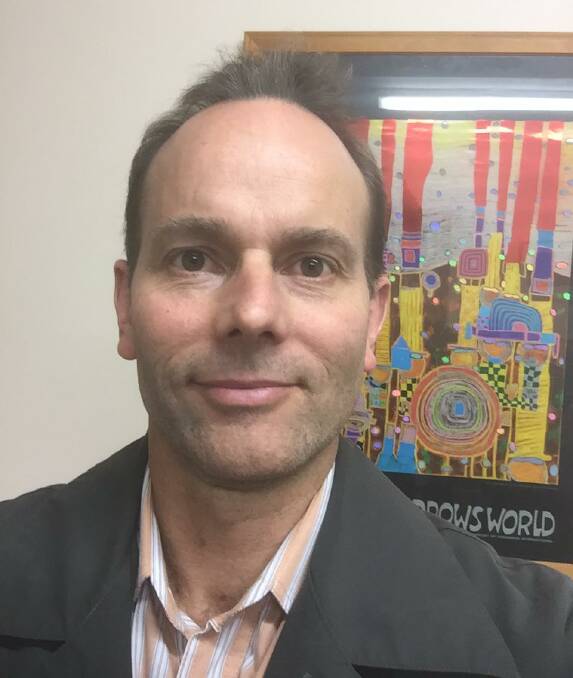
How is the Lithgow area coping with COVID-19 and our new way of life?
Subscribe now for unlimited access.
$0/
(min cost $0)
or signup to continue reading
'People are the treatment to this disease'. That's the message form local Doctor, Richard Stiles who says the Lithgow region has fared COVID-19 well so far and stresses that while we're still a ways off things going back to normal, he's pleased the Lithgow community has stepped up to the challenge of self isolation.
"We may well have headed over the peak of that curve, which is an amazing thing," Dr Stiles said.
"Australia has achieved that. And I think everyone's contributed to that. I think one of the mantras, that I've heard, which I think is great, is that the people are the treatment to this disease. Doctors can help but the main treatment is people.
"We as a community, as a nation, have a lot to be really pleased about with regards to now, the number of new cases is starting to fall."

Challenges not over yet
Doctor Stiles said the other really important social message, alongside that good news is that the challenges are not over by a long shot.
"It's really important at this stage that people maintain those social disciplines. I like the term physical distancing while while retaining social connectedness.
Dr Stiles encouraged everyone to get their flu shot as soon as they could this year to ease the potential burden on local health as flu season ramps up in addition to the COVID-19 pandemic.
"I would just really encourage people in Lithgow that we're doing well in the community, we only have a small number of COVID positive patients that are being very well managed in terms of other likely infectious diseases. And so Lithgow is in a really good position at the moment," he said.
We may well have headed over the peak of that curve, which is an amazing thing.
- Dr Richard Stiles
He said the main message that health professionals want to give out to the Lithgow community is that the best way to manage the COVID-19 pandemic is via social control measures.
"This time everyone, young and old - and dare I say the young need to need to follow the rules of what the government's putting out in terms of the social distancing and staying at home," he said.
"Because we have no active care or treatment for the virus.
Read more:
"Once people get sick, really sick, from the infection we can sometimes support them but health really is in this situation playing a sort of a catch up safety net.
"Our main, the main tool we have to manage the epidemic is through the whole of the population getting on board with the social control measures. And it's as simple and complicated as that."
Dr Stiles said to get effective social control measures, the community needs over 80 percent of people to be complying with these measures, or else infections keep ramping up.
Dr Stiles said it's on everyone to look after each other to prevent further spread of the virus. He said while younger people might not show symptoms or even have severe symptoms, it's still dangerous to other, more vulnerable people in the community.
Call your GP if you're unwell in the first instance
Dr Stiles said a larger community project is coming, but at this stage, the best thing to do is call your GP if you're experiencing symptoms or are unsure of health advice.
"Call by phone and usually they will go through symptoms with you. Or you can also call the Health Direct number and they can also direct people.
"Depending on where we're at in the epidemic and what what care facilities and strategies will be evolving, we will direct people to, you know, various places depending on their symptoms," Dr Stiles said.
Read more:
"Don't go up if you only got a bit of a sniffle. Don't go up to the hospital. Yes. We do not want people who are generally feeling okay to go up to casualty to get assessed for this. The hospital is going to be under enormous load over this period and both for the safety of people and also for the whole hospital management of the more serious cases we need to keep less serious cases away from the hospital.
"If you've got to work within 1.5 meters of people, then it's best to wear a mask. If you can get, or the employer can get some surgical masks, yep. They don't have to be the really high tech ones."
Dr Stiles said a standard surgical mask is enough to protect you if you're an essential worker and interacting with the public on a regular basis.
"Just a standard surgical mask is what's being recommended. Also, if you're touching things that you need to do, like a common job, then ideally everyone washes their hands before they start, do the job, then wash your hands at the end of it," he said.
We have removed our paywall from our stories about the coronavirus. This is a rapidly changing situation and we want to make sure our readers are as informed as possible. If you would like to support our journalists you can subscribe here.


